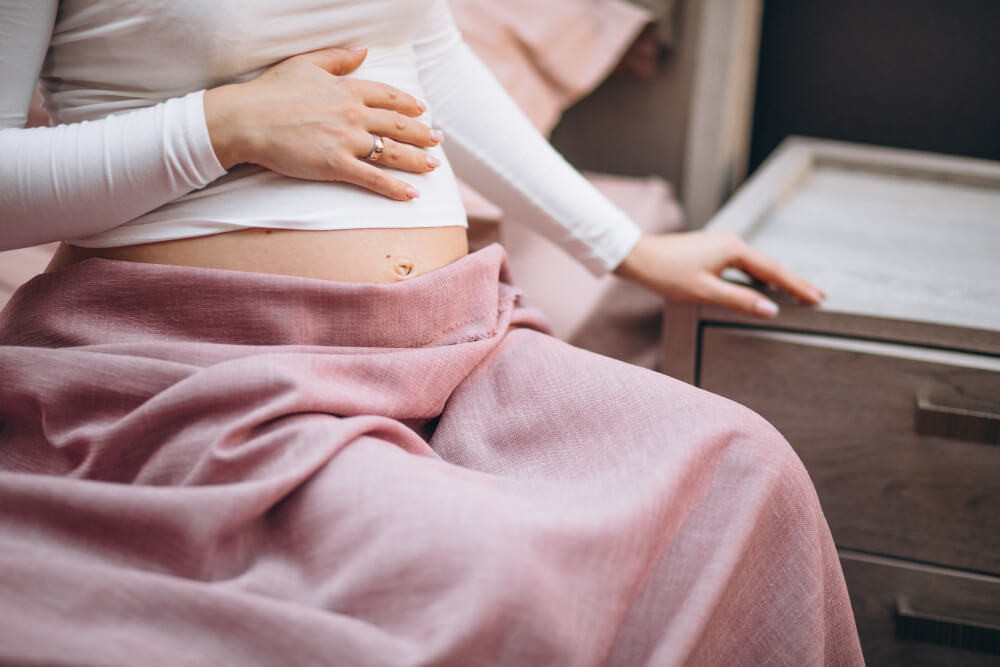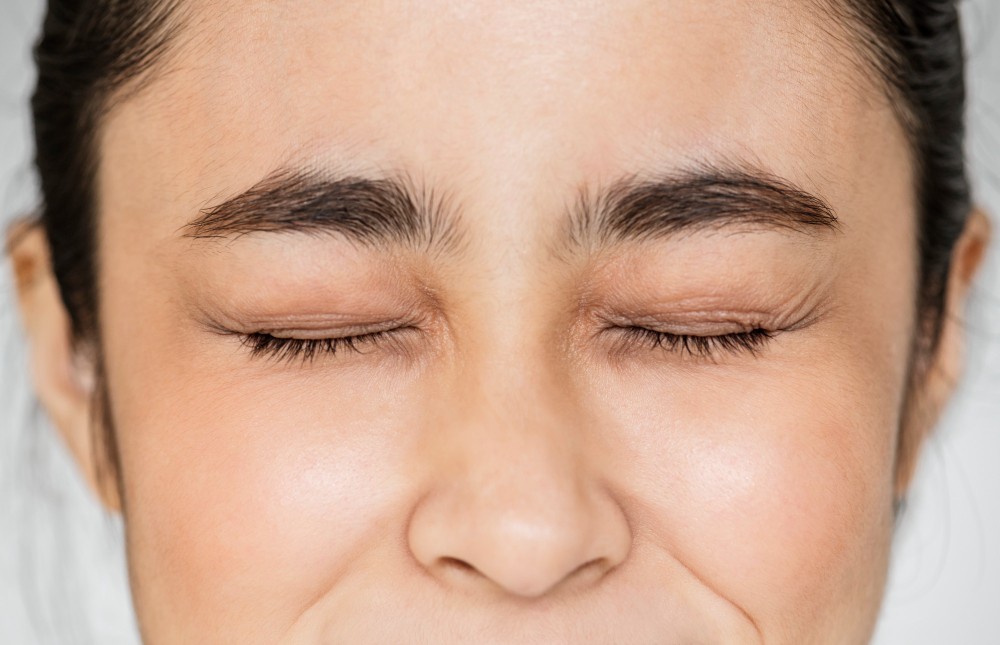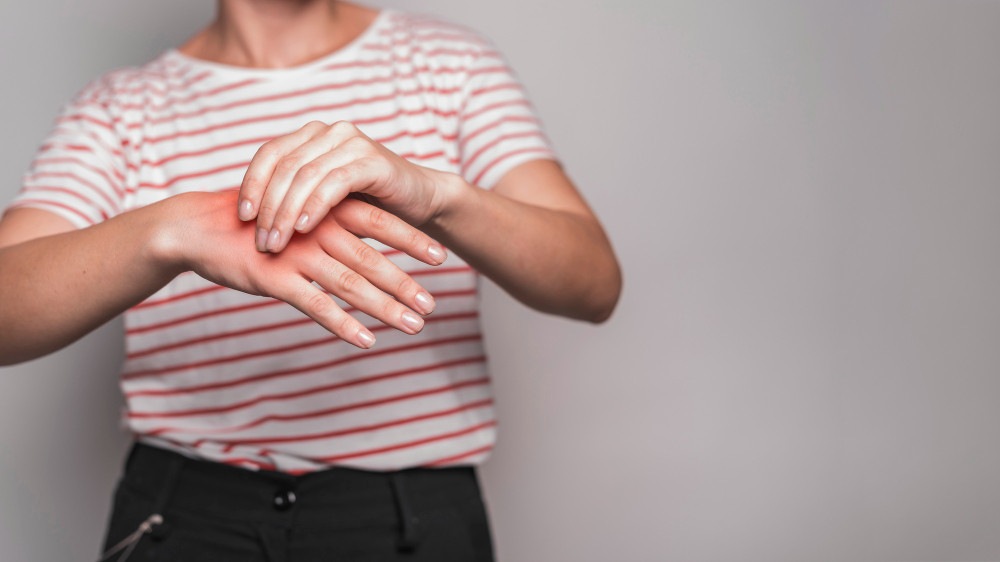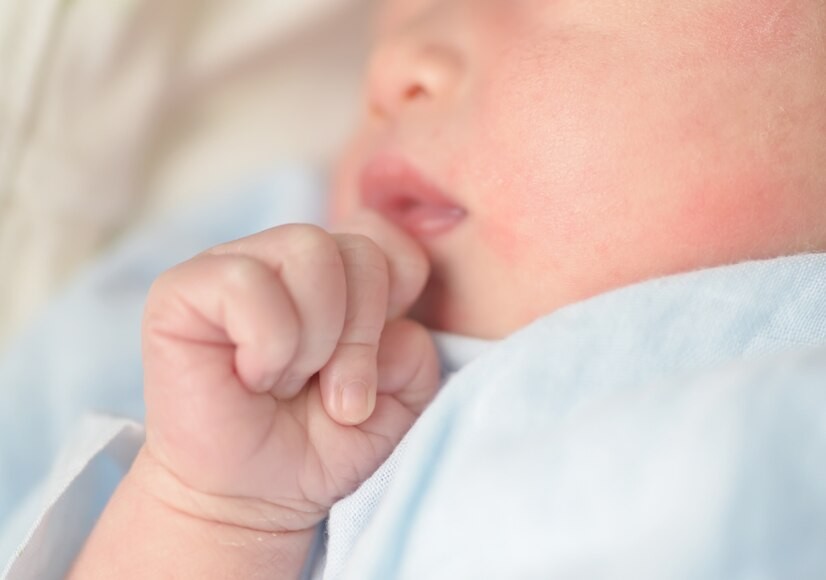In addition to relapsing during pregnancy, even in pregnant women without a history of eczema, eczema can flare up at any moment when exposed to eczema triggers.
What is eczema?
The word "eczema" is not used to describe a specific medical condition. When skin becomes inflamed and red, or when it gets dry and itchy, this condition is known as eczema. The affected areas may include the fingers, toes, wrists, eyelids, neck, and the crevices of the knees and elbows.
Atopic dermatitis, although commonly mistaken for eczema, is actually a prevalent form of eczema, as stated by Everyday Health. Atopic dermatitis is a persistent and highly intense skin disorder known as eczema. This condition is characterized by the skin cracking and releasing moisture when scratched.
Causes of eczema in pregnant women
Eczema can flare up during pregnancy for women who have had it before. Furthermore, some pregnant women may also get their first episode of eczema while pregnant. Having a close relative with eczema also raises the risk of experiencing the skin condition.
The exact cause of eczema in expectant women is not yet known with certainty. Nevertheless, the cause is believed to be a combination of factors, including changes in the immune system and hormonal fluctuations.
Hormonal changes in pregnant women can affect the normal balance of cells that protect the skin barrier. This will result in the immune system attacking skin cells, which can lead to eczema.
According to What to Expect, pregnant women may develop eczema due to an elevated presence of T lymphocytes, which are a type of active white blood cells. Eczema in pregnant women is considered to be initiated by mutations in T lymphocyte cells.
Nevertheless, not all pregnant women are susceptible to the recurrence of eczema. Certain pregnant women with a prior history of eczema won't experience a relapse during pregnancy.
Symptoms of eczema in pregnant women
The symptoms of eczema in pregnant women are largely similar to the symptoms of eczema in the general population. Several potential symptoms may manifest, such as:
- Reddish and rough skin
- Dry, sensitive and inflamed skin
- The skin is characterized by rough or scaly regions that may exude crust or fluid
- Itchy bumps may be crusty and appear in clusters
The symptoms of eczema are not infectious. Touching eczema-afflicted sores or dry skin does not trigger it. Mothers may transmit this disease to their children.
Treatment of eczema in pregnant women
Moisturizer or ointment usually relieves pregnancy-related eczema. Your doctor may prescribe steroid ointment and antihistamines for severe eczema. The following are some of the preventative actions that can be taken for eczema:
- Eczema triggers should be avoided. Irritators, including animal dander, dust, pollen, jewelry, and body care products that contain alcohol, can induce eczema conditions.
- Avoid purchasing products that contain fragrance. Certain alcohol-based cosmetics, including body lotions, may induce eczema in individuals with sensitive skin due to the presence of scent.
- Avoid immersing or swimming in hot water. If you want to shower, swim, or bathe, use lukewarm water.
- Use a gentle soap or cleaner. Bath soap or facial cleansers may contain chemicals that cause eczema. It is recommended to use products with gentle, hypoallergenic components.
- Apply moisturizer regularly. Always moisturize your skin after a shower or when it feels dry. Choose a moisturizer that is specifically designed for dry skin and can seal in moisture.
Eczema in pregnant women is typically not hazardous, but in cases of severe eczema, this condition might disrupt your daily activities. If you need medical advice or consultation, you can either visit a doctor or make use of the consultation features that are available in the Ai Care application by downloading the Ai Care application from the App Store or Play Store
Looking for more information about pregnancy, breastfeeding, and the health of women and children? Click here!
- dr. Alvidiani Agustina Damanik
Galan, N. (2023). Eczema during pregnancy: What to know. Available from: https://www.medicalnewstoday.com/articles/321580
Geddes, J. (2022). Eczema during pregnancy. Available from: https://www.whattoexpect.com/pregnancy/whose-body/eczema-dermatitis.aspx
Lawler, M. (2019). Eczema (Atopic Dermatitis) During Pregnancy: What You Need to Know. Available from: https://www.everydayhealth.com/eczema/pregnancy-eczema.aspx











